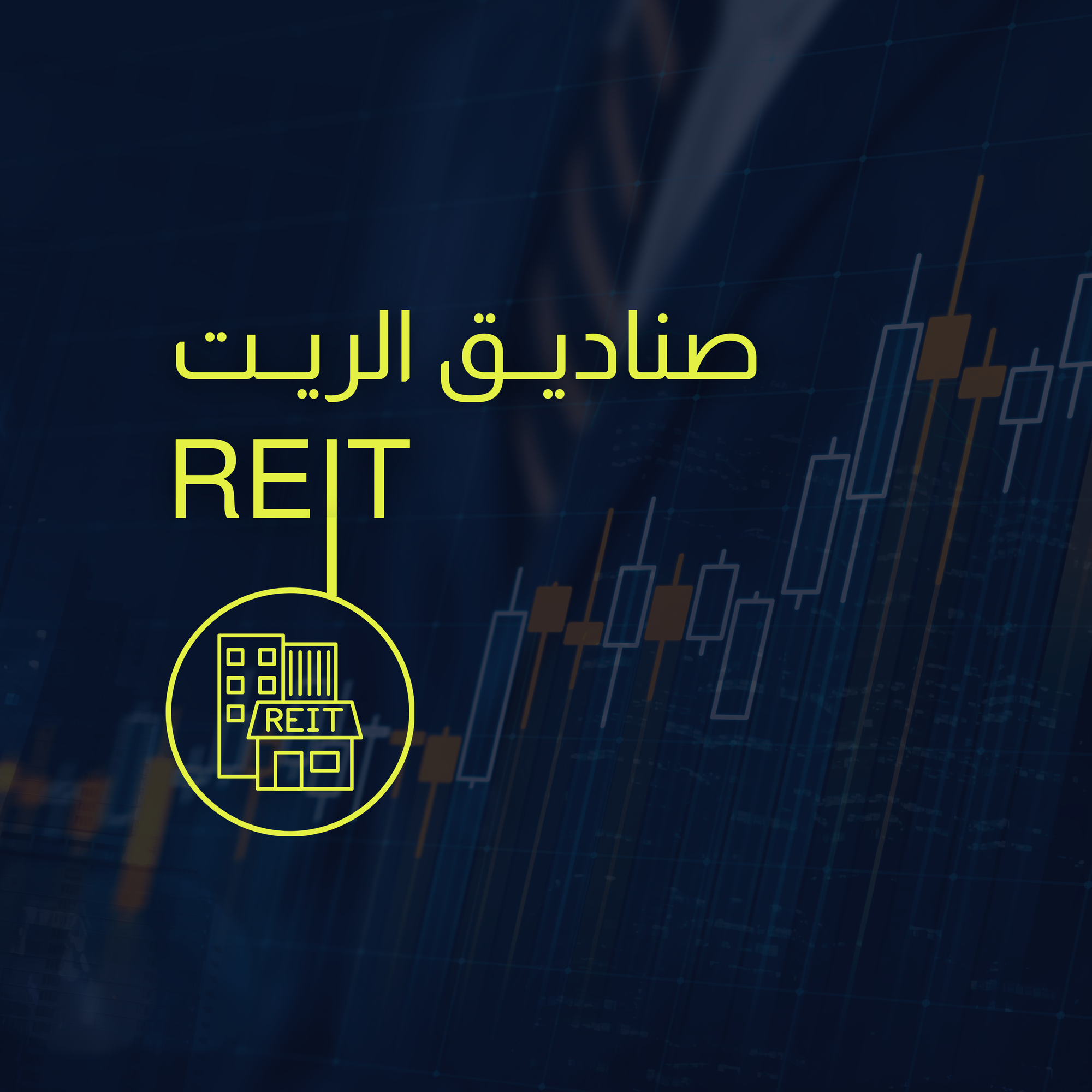Real Estate Investment Traded Funds - REITs

Real estate investment trusts (REITs) are essential investment tools in the real estate sector, providing diverse and flexible investment opportunities for investors in the Kingdom. These funds are a fundamental part of the financial market, significantly contributing to economic growth and diversifying income sources.
To understand real estate investment trusts (REITs) more deeply, we should first learn about investment funds in general and understand the differences between them and individual investments.
Investment funds are financial instruments that pool capital from multiple investors to create a shared investment portfolio, which is managed collectively by professional fund managers. The goal of these funds is to provide diversification and reduce risks, in addition to offering access to a variety of investment opportunities that may not be available to individual investors. Typically, the cost of investing in these funds is lower than individual investments.
As for individual investing, it refers to individuals making their own investment decisions and independently managing their portfolios. Individual investors have full control over their choices and investment strategies, conducting their own research and analysis to make investment decisions based on their personal goals and risk tolerance.
Investment funds are distinguished from individual investing in the following:
- Diversification: Investment funds offer a diversified portfolio of financial assets such as stocks, bonds, and commodities, which reduces the risks associated with investing in a single asset. This allows investors to invest and diversify at a relatively lower cost compared to individual investing.
- Liquidity: Investing in funds allows investors easy access to their money, as units can be bought and sold easily in financial markets.
- Income Generation: Some investment funds distribute profits to investors periodically, providing a regular cash flow.
- Professional Management: Investment funds are managed by financial experts who handle the selection and management of assets professionally, offering investors the opportunity to benefit from expert knowledge without direct involvement.
- Accessible Entry Point: Investors can invest in investment funds with smaller amounts compared to direct investment in assets, making them accessible to a larger number of investors.
In contrast, individual investing is distinguished from investing in real estate funds by the following:
- Individual Opportunities: An investor can select opportunities that align with their personal goals, such as investing in local projects or properties with cultural value.
- Control and Flexibility: An investor has the freedom to make decisions and adjust their strategy according to market changes and personal objectives.
Types of investment funds:
When establishing any fund, the fund manager determines the fund's capital structure, that is, the amounts the fund will collect and invest. Therefore, there are two types:
- Open-Ended Funds: These are flexible in terms of capital, as the invested capital can change based on the number of units issued, and investors can redeem the value of their investment at any time.
- Closed-Ended Funds: These have stable investor capital, as the number of units does not change, and exiting the fund typically occurs through selling units to another investor or upon the fund's maturity.
Open-ended funds are the most common type in financial markets, including the markets of the Kingdom of Saudi Arabia.
Methods of Managing Investment Funds:
- Active Management:
- Relies on the skills of the fund manager to achieve returns that surpass market index returns.
- Requires continuous changes in the investment methods within the fund.
- Increases management costs due to ongoing analysis and changes in investment distribution.
- Passive Management:
- Involves allocating invested amounts across a large number of stocks within one sector or expanding to include stocks from all market sectors to replicate the movement of that sector's index or the overall market index.
- Reduces administrative fees, as it does not require continuous changes in the investment means within the fund.
- Relies more on market performance rather than actively determining it.
Now that we have learned about investment funds, we can understand one of the most important types, which are Real Estate Investment Trusts (REITs).
These are investment funds available to the public, with their units traded on the financial market, globally known as "REITs." They aim to facilitate investment in developed, income-generating real estate that provides periodic and rental income. REITs are characterized by low investment costs and high liquidity of units, allowing individuals to invest in real estate without directly owning or managing the properties.
- Advantages of Real Estate Investment Trusts (REITs) in the Kingdom:
- Distribution of 90% of Profits: REITs are required to distribute at least 90% of their net profits periodically (annually).
- Geographical Diversification: They can invest locally, regionally, and globally (provided that the total value of the fund's assets in real estate outside the Kingdom does not exceed 25%).
- Strict Oversight: They are regulated by the Capital Market Authority and "Tadawul."
- High Transparency: REITs are required to publish detailed periodic financial information.
- Risks:
- Market Risks: Subject to fluctuations in the financial market.
- Real Estate Risks: Such as vacancy risks and the decline in property values.
- Credit Risks: Depend on the tenant's ability to pay rent.
Types of Real Estate Investment Trusts (REITs):
- Investment in Real Estate Assets:
Involves direct investment in various types of properties such as residential buildings, office properties, hotel sectors, and healthcare facilities. The main source of returns is the rental income from these properties.
- Investment in Debt Securities:
Involves lending money to individuals who invest in or develop real estate. Returns depend on the interest paid on loans to the funds.
- Diversified Investment:
Involves both direct investment in real estate and lending money. Returns come from rental income and interest on loans.
There are currently 19 real estate funds listed on the financial market in the Kingdom (18 in the Main market and one in the Parallel market).
These funds have been arranged based on their market capitalization, from largest to smallest, according to the Saudi Exchange’s Statistical Report for the first quarter of 2024.

Prepared By:
Shahad Saad Alwahbi
Hessa Almulifi
Resources:
https://cma.org.sa/Awareness/IFs/Pages/IFManagementMethods.aspx
https://www.saudiexchange.sa/wps/portal/saudiexchange/rules-guidance/capital-market-overview/funds?locale=ar
https://time.com/personal-finance/article/mutual-funds-vs-stocks/
https://www.investopedia.com/terms/m/mutualfund.asp
https://www.experian.com/blogs/ask-experian/pros-cons-investing-in-reits
https://www.sofi.com/learn/content/reit-investing-pros-and-cons/
https://www.piramalrealty.com/blog/post/the-pros-and-cons-of-investing-in-reits/